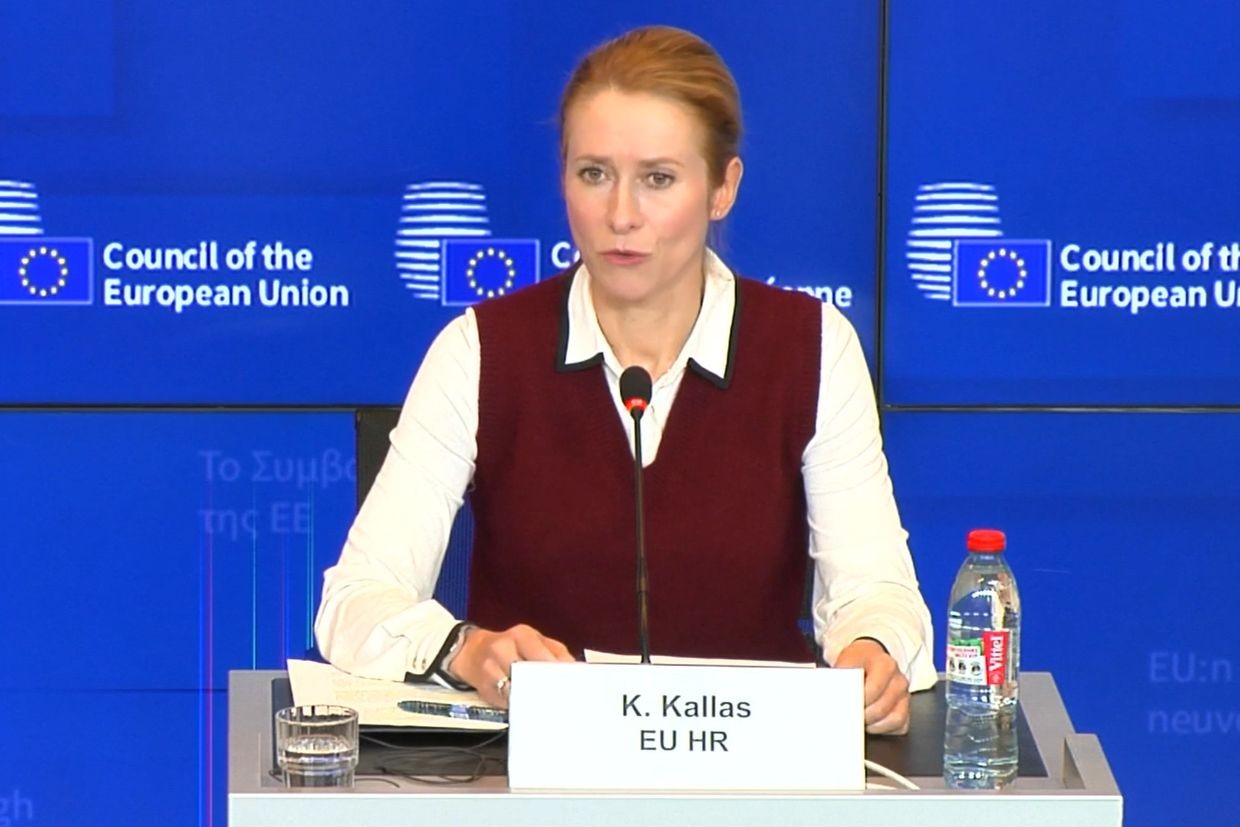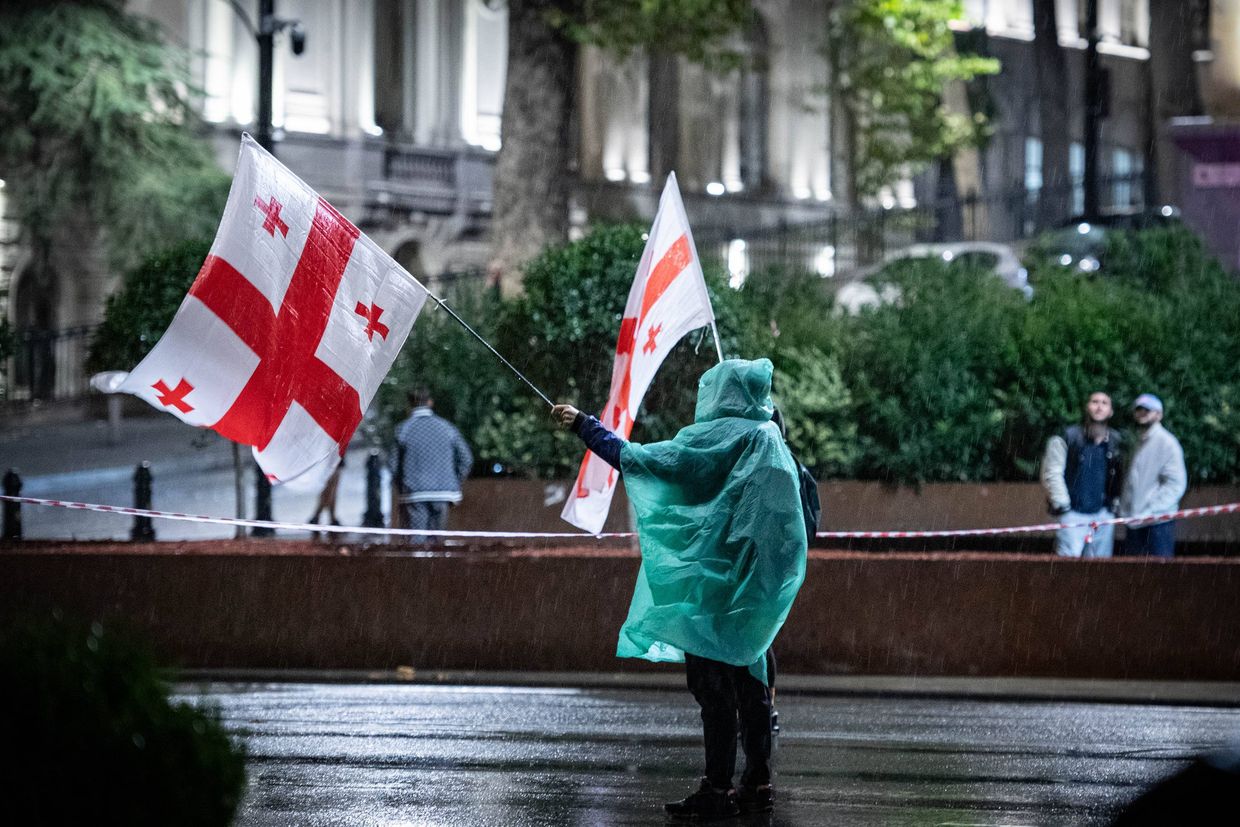
The EU’s top diplomat, Kaja Kallas, has said that Georgia was not invited to an EU ministerial meeting in Luxembourg, adding that the EU might suspend visa-free travel for ‘some groups’ in the country.
Kallas made both remarks during a press briefing on Monday following a meeting between EU foreign ministers and prospective EU members.
In a brief speech before accepting questions from reporters, Kallas said that the ministers who had attended the meeting were ‘very clear on the rule of law and human rights situation that continues to deteriorate in Georgia’.
‘Personal attacks against European ambassadors are unacceptable and have no place in diplomacy’, she said in reference to the Georgian Dream-led government’s regular attacks on EU officials and diplomats, most notably German Ambassador Peter Fischer.

‘The Commission will present its visa suspension mechanism report later this year. With the new regulation on visas entering into force in November, this will give us the opportunity to cancel the visa free regime for some groups’, Kallas added.
She later on confirmed that Georgia ‘was not invited at the ministerial level’ to the meeting.
When asked about Georgia’s lack of participation in the meeting and potential measures that could be implemented by the EU against Georgian Dream, including sanctions and visa suspensions, Kallas said: ‘We have proposed several measures under different sanction regimes’.
‘So far, we have not been able to adopt them because not all Member States have been supportive’, Kallas added.
‘When it comes to the visa, the Commission will present its visa suspension mechanism later this year, then also putting forward the regulation on visas and certain groups. As it is not my competence, I will not comment in detail, but this should be the case.’
She has also expressed concern about the Georgian government’s recent wave of arrests against protesters, saying that the measures taken by Tbilisi against journalists, civil society, and protesters went ‘against all the principles that we value in the European Union’. She added that it would be ‘impossible to consider’ Georgia’s EU membership ‘with these measures’.
On 16 October, Georgia’s Parliament, fully controlled by the ruling Georgian Dream party, fast-tracked legislative amendments that would severely restrict street protests and allow the courts to ban individuals from engaging in political activity. The amendments prescribed administrative detention for the use of face coverings or blocking roads during protests.
At least 20 have been arrested under the new amendments since Sunday.

This article was translated into Armenian and republished by our partner CivilNet.





![Baia Margishvili standing in central Tbilisi with a sign reading: ‘The Prosecutor’s Office [is] a punitive squad. How many more innocent people will you put in prison?’ Photo: Mariam Nikuradze/OC Media.](/_next/image/?url=https%3A%2F%2Fassets.bucket.fourthestate.app%2Foc-media-prod%2Fcontent%2Fimages%2F2026%2F02%2Fcalls-for-sanctions-and-raids-19-10-25-48.jpg&w=3840&q=50)




